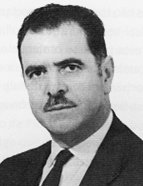

In April 1962, his intellectual and academic marginalisation led him to apply for a scholarship from the Calouste Gulbenkian Foundation to continue his studies in Paris at the Sorbonne. His study plan related to the “cultural activity of the Portuguese in France in the 19th century” and being awarded the grant allowed him to leave for Paris on 15 September 1963. There he met various historians but above all Léon Bourdon who supported his application to do a doctorate. For three years (1964-1967) he took part in the seminars given by Albert Silbert at the École des Hautes Études on the subject of “Recherche sur l’Histoire du Portugal au XIXe. siècle”. Between 1966 and 1968 he also attended the seminars run by Pierre Vilar on “Théorie et pratique de la recherche historique”. He also followed but just as a listener the courses: “Proudhon et Charles Marx” taught by Georges Gurvitch; “Histoire et statistique économiques” by Ernest Labrousse; “Littérature et sociologie” by Lucien Goldmann; and “Sociological Interpretation of the Mineira School and Arcadism” by António Cândido de Mello e Sousa, a professor from the University of São Paulo.
The atmosphere he experienced for five years in Paris, and where he was privileged to witness the events of May 1968, allowed him to break away from the historical training he had received – as shown in his work A História em Discussão (History under Discussion) – and guaranteed him contact with new methodological procedures, new readings in well-stocked libraries and socialising and discussion with outstanding intellectuals. Then, being an exemplary scholarship holder, he finished and submitted his doctoral thesis in September 1968, with the public defence being held on 6 January 1969. After some changes made during his research, the title of his work became A crise do liberalismo e as primeiras manifestações do pensamento socialista em Portugal (The crisis of liberalism and the first manifestations of socialist thought in Portugal). The jury, presided over by Léon Bourdon, awarded him the highest grade – “very good” – and his thesis was given equivalence to a complementary thesis for the higher degree of “doctorat d’État”. The same month, on 14 January, he returned to Portugal. Later that year he published A Revolução de Setembro de 1836 (The September Revolution of 1836).
